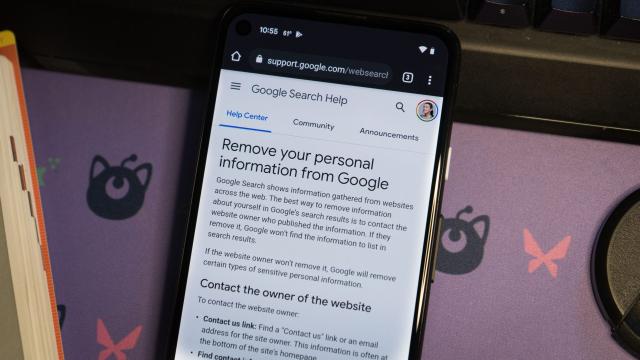Google is changing its search algorithm to help victims of revenge porn and online slander. According to the New York Times, Google will begin preventing websites that host defamatory content from appearing in the list of results when searching for a name. Google will also exclude websites with dubious names like BadGirlReport.date and PredatorsAlert.us and websites that charge victims to remove the harassing content.
The new features are part of a working concept called “known victims,” to help victims of repeated online harassment regain a bit of control.
“Some types of queries are more susceptible to bad actors and require specialised solutions,” writes Pandu Nayak, a Google fellow and vice president of search, in Google’s Keyword blog.
The blog continues with details:
To help people who are dealing with extraordinary cases of repeated harassment, we’re implementing an improvement to our approach to further protect known victims. Now, once someone has requested a removal from one site with predatory practices, we will automatically apply ranking protections to help prevent content from other similar low quality sites appearing in search results for people’s names. We’re also looking to expand these protections further, as part of our ongoing work in this space.
For its part, Google admits this isn’t a finite solution for online harassment.
“It really should have a significant and positive impact,” David Graff, Google’s vice president for global policy and standards and trust and safety, told the Times. “We can’t police the web, but we can be responsible citizens.”
The public is now more aware of revenge porn and online slander, not only because of the number of victims who have reported the attacks, but because of how difficult it is to take the content down. As Times reporter Kashmir Hill (previously a reporter for Gizmodo) explained earlier this year, Google, which handles an estimated 90% of global online search traffic, has had a lousy track record of coming to the aid of those affected. Part of the reason is that Google has long prided itself on being an “unbiased” reflection of the web. But when lives outside of the internet are at stake, it’s hard to remain impartial.
As Google tweaked its search algorithm to surface more “authoritative content,” this invited more intentionally misleading, false, and offensive websites to appear. That’s when Google started to be more proactive about removing harmful results from search. As the company has shifted its policies, it also published request forms to remove content like fake pornography and even identifying medical information.
You can access these forms if you’re ever a victim. They’re available as a link in each of the support pages for removing non-consensual explicit or intimate personal images, involuntary fake pornography, as well as financial, medical, and other identifying information. There’s also a form to remove any doxxing content and to ask for backup when dealing with sites asking for payment to take incriminating content. Bookmark these links — you never know when someone might decide to try to ruin your online reputation.
